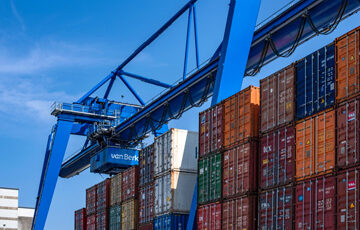
The role of lawyers in international debt collection is crucial and multifaceted. With the increasing complexity of global business transactions and the rise in cross-border debts, lawyers play a pivotal role in navigating the intricate web of laws and regulations governing debt collection. From understanding international debt collection laws to assessing the viability of debt recovery options, lawyers provide precise and analytical guidance throughout the process. They negotiate payment plans and settlements, initiate legal proceedings and enforcement actions, and handle cross-border disputes and jurisdiction issues.
Moreover, lawyers collaborate with international partners and agencies, offering their expertise in debt recovery processes. As we delve into the intricacies of their role, we will uncover the indispensable insights and strategies that lawyers employ to ensure successful international debt collection.
Understanding International Debt Collection Laws
Understanding international debt collection laws is essential for lawyers involved in the process of collecting debts across borders. International debt collection involves the recovery of outstanding debts from debtors located in different countries. It is a complex and challenging task that requires a deep understanding of the legal framework governing debt collection in various jurisdictions.
International debt collection laws vary significantly from one country to another. These laws govern the rights and obligations of both debtors and creditors, as well as the procedures and remedies available for debt collection. Lawyers must be well-versed in these laws to effectively navigate the intricacies of cross-border debt collection.
One key aspect of understanding international debt collection laws is familiarity with the regulations and procedures for enforcing foreign judgments. In many cases, a judgment obtained in one country needs to be enforced in another country to collect the debt. Lawyers must understand the specific requirements and procedures for enforcing foreign judgments in each jurisdiction involved.
Additionally, lawyers must be aware of any international conventions or treaties that govern debt collection, such as the Hague Convention on the Recognition and Enforcement of Foreign Judgments. These conventions provide a framework for cooperation between countries in the enforcement of foreign judgments, streamlining the debt collection process.
Assessing the Viability of Dutch Debt Recovery Options
Evaluating the feasibility of debt recovery options is crucial for lawyers engaged in international debt collection. To effectively assess the viability of these options, lawyers must consider various factors that could impact the success of the recovery process. Here are five key elements to consider:
- Financial Standing: Lawyers need to evaluate the financial standing of the debtor to determine their ability to repay the debt. This includes assessing their income, assets, and liabilities.
- Legal Framework: Understanding the legal framework of the debtor’s jurisdiction is essential. Lawyers must be familiar with local laws, regulations, and procedures to navigate the debt recovery process effectively.
- Documentation: The availability and accuracy of documentation related to the debt are crucial. Lawyers must ensure that all necessary documentation, such as loan agreements and invoices, is in order to support the debt recovery efforts.
- Enforcement Mechanisms: Lawyers should assess the enforcement mechanisms available in the debtor’s jurisdiction. This includes understanding the effectiveness of local courts, arbitration, and mediation processes.
- Time and Cost: The time and cost involved in pursuing different debt recovery options should be carefully considered. Lawyers need to weigh the potential benefits against the resources required for each approach.
Negotiating Payment Plans and Settlements
To effectively negotiate payment plans and settlements in international debt collection cases, lawyers must carefully analyze the financial circumstances of the debtor and explore mutually beneficial options for repayment. This process requires a thorough understanding of the debtor’s financial situation and an assessment of their ability to make payments. Lawyers need to review the debtor’s income, assets, and liabilities to determine their capacity to repay the debt.
Once the financial analysis is complete, lawyers can propose payment plans and settlements that are realistic and achievable for the debtor. Negotiating a payment plan involves finding a balance between the debtor’s ability to pay and the creditor’s desire to recover the debt in a timely manner. This may involve restructuring the debt, extending the repayment period, or reducing the amount owed.
In some cases, a settlement may be the most viable option. Lawyers can negotiate with the debtor to reach a mutually acceptable settlement amount that satisfies both parties. This may involve a lump sum payment or a reduced amount paid over time.
Throughout the negotiation process, lawyers must remain objective and impartial, advocating for their client’s interests while also seeking a fair resolution for all parties involved. Effective negotiation skills, a deep understanding of international debt collection laws, and the ability to analyze financial data are crucial for lawyers in successfully negotiating payment plans and settlements in international debt collection cases.
Initiating Legal Proceedings and Enforcement Actions in Holland
Having thoroughly analyzed the debtor’s financial circumstances and explored options for repayment, lawyers can now proceed to initiating legal proceedings and enforcement actions in international debt collection cases. This stage is crucial as it involves taking legal action to compel the debtor to fulfill their financial obligations.
Here are five key considerations that lawyers must address when initiating legal proceedings and enforcement actions:
- Court Filings: Lawyers in the Netherlands must prepare and file the necessary documents with the appropriate court to commence the legal proceedings. This includes drafting the complaint or petition and gathering supporting evidence.
- Service of Process: Dutch Lawyers must ensure that the debtor is properly served with the legal documents, informing them of the lawsuit or enforcement action. This is essential to ensure that the debtor has notice of the legal proceedings and an opportunity to respond.
- Discovery: Lawyers in Holland can utilize various discovery tools, such as interrogatories and depositions, to gather information and evidence from the debtor. This aids in building a strong case and evaluating the debtor’s assets for potential enforcement actions.
- Enforcement Options: Lawyers under Dutch law must assess the available enforcement options based on the jurisdiction’s laws and regulations. These may include wage garnishment, asset seizure, or obtaining a judgment lien on the debtor’s property.
- International Considerations: Lawyers in the Netherlands must navigate the complexities of international law, including jurisdictional issues and enforcing judgments across borders. This requires a thorough understanding of international treaties and conventions related to debt collection.
Initiating legal proceedings and enforcement actions is a critical stage in international debt collection. Lawyers play a pivotal role in advocating for their clients’ rights and ensuring that debtors are held accountable for their financial obligations.
Handling Cross-Border Disputes and Jurisdiction Issues
When handling cross-border disputes and jurisdiction issues in international debt collection cases, lawyers must navigate complex legal frameworks and international treaties to ensure effective resolution.
Cross-border disputes arise when creditors and debtors are located in different countries, making it challenging to determine which country’s laws should apply and which court has jurisdiction over the matter. Lawyers play a crucial role in analyzing the applicable laws and treaties and advising their clients on the most favorable jurisdiction for pursuing debt collection.
To handle cross-border disputes, lawyers need to consider various factors, such as the debtor’s location, the jurisdiction clause in the contract, and any relevant international conventions. They must carefully assess the legal remedies available in each jurisdiction and advise their clients on the most effective strategy for debt recovery. This may involve initiating legal proceedings in the debtor’s jurisdiction or seeking recognition and enforcement of a foreign judgment in the debtor’s country.
Jurisdiction issues can be particularly complex in international debt collection cases, as different countries may have conflicting laws and interpretation of jurisdictional rules. Lawyers need to have a deep understanding of international law and the specific legal systems involved to effectively navigate these challenges. They may need to collaborate with local counsel in the debtor’s jurisdiction to gather evidence, file legal documents, and advocate for their clients’ interests.
Collaborating With International Partners and Agencies
In order to effectively navigate the complexities of international debt collection cases, lawyers must collaborate with international partners and agencies to ensure comprehensive and successful outcomes. The involvement of these partners and agencies brings a range of benefits, enhancing the lawyer’s ability to advocate for their clients and achieve favorable results.
Here are five key reasons why collaboration is crucial in international debt collection:
- Increased expertise and knowledge: Working with international partners and agencies provides lawyers with access to a wealth of expertise and knowledge regarding local laws, regulations, and cultural nuances. This deep understanding is vital in developing effective strategies and anticipating potential challenges.
- Enhanced global reach: Collaborating with international partners and agencies expands a lawyer’s global network, allowing them to tap into resources and connections in different jurisdictions. This broad reach facilitates the collection of debts across borders, ensuring a wider scope for successful outcomes.
- Improved negotiation power: By partnering with reputable international agencies, lawyers can leverage their credibility and reputation in negotiations. This increased bargaining power can lead to more favorable settlements and faster debt recovery.
- Efficient communication: International debt collection often requires communication with parties from different countries and cultures. Collaborating with international partners and agencies streamlines this process, ensuring effective and efficient communication to resolve disputes and collect outstanding debts.
- Access to specialized tools and technologies: International partners and agencies often have access to specialized tools and technologies that can support the debt collection process. This includes advanced data analytics, tracing services, and debtor profiling, which can significantly enhance the lawyer’s ability to locate and recover assets.
Providing Expert Advice and Guidance in Debt Recovery Processes
Lawyers play a pivotal role in providing expert advice and guidance throughout the debt recovery process, utilizing their precise and thorough legal knowledge to navigate complex legal frameworks and ensure favorable outcomes for their clients. Debt recovery processes can be intricate and time-consuming, involving various legal procedures and documentation. Lawyers possess a deep understanding of the legal intricacies involved in debt recovery, enabling them to guide their clients through the process with precision and efficiency.
One of the key contributions of lawyers in debt recovery is their ability to assess the legal options available to their clients. They analyze the debt agreements, contracts, and applicable laws to provide a comprehensive understanding of the rights and obligations of both parties involved. This analysis allows lawyers to identify effective strategies for debt recovery, such as negotiating settlements, initiating legal proceedings, or exploring alternative dispute resolution methods.
Furthermore, lawyers provide guidance on the collection and preservation of evidence to support their clients’ claims. They ensure that all necessary documentation is properly prepared and presented in court, increasing the chances of a successful debt recovery outcome.
In addition to their legal expertise, lawyers also offer valuable advice on the practical aspects of debt recovery. They assist clients in assessing the financial viability of pursuing debt recovery, weighing the costs and benefits associated with legal action.
Conclusion
In conclusion, lawyers play a crucial role in international debt collection. They navigate complex legal frameworks, assess recovery options, negotiate settlements, and initiate legal proceedings. They also handle jurisdiction issues, collaborate with international partners, and provide expert advice. Their expertise and guidance are instrumental in ensuring successful debt recovery processes and resolving cross-border disputes.


